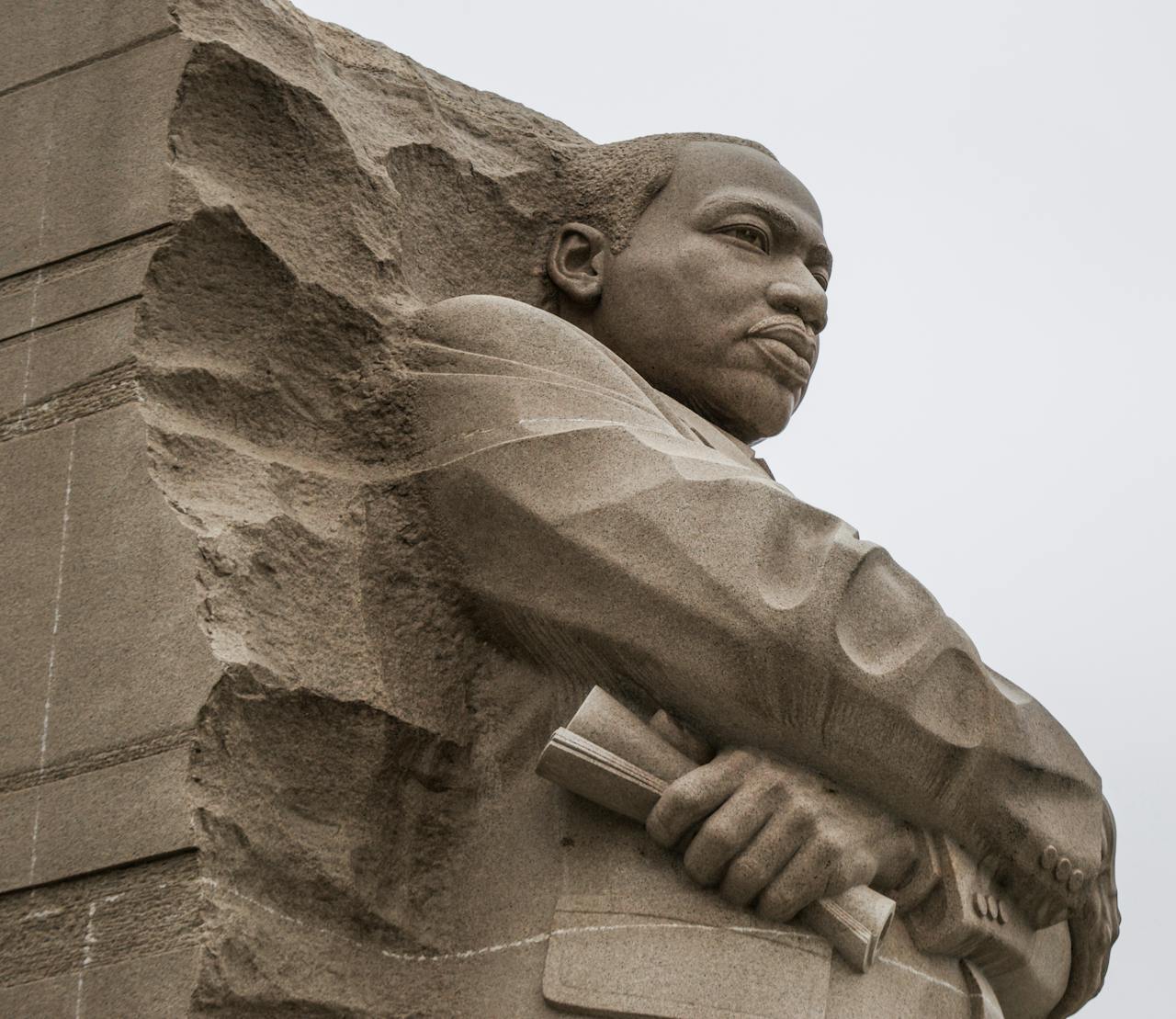By Dr. Dia Pfleger, Chief People & Culture Officer
“Injustice anywhere is a threat to justice everywhere.”
— Martin Luther King Jr., Letter from Birmingham Jail, 1963
If Martin Luther King Jr. were alive today and responding to the pushback on Diversity, Equity, Inclusion, Accessibility, and Belonging (DEIAB), his words would likely echo many of the principles found in his iconic “I Have a Dream” speech, while adapting those ideals to the challenges of the present day. He might integrate the themes of justice, equality, and belonging with a renewed call for inclusive practices that affirm the dignity and potential of every individual. Here’s how elements from his “I Have a Dream” speech could be adapted to reflect the language of DEIAB:
Commitment to Justice, Equity, and Human Dignity
In his “I Have a Dream” speech, King spoke of his vision for a future where people “will not be judged by the color of their skin but by the content of their character.” In today’s context, King would likely build on this idea to emphasize that, while the color of one’s skin is one of many characteristics, society must move beyond such superficial divisions and confront the deep-rooted inequities tied to race, gender, disability, and other aspects of identity.
He might say:
“I have a dream that one day, this nation will rise up and live out the true meaning of its creed—that all people, regardless of race, gender, ability, or background, are endowed with the right to live with equity, dignity, and access to opportunity. That we, as a collective, will build a world where every individual—regardless of their identity—can find a sense of belonging.”
The Importance of Education and Awareness
King believed deeply in the power of education to change hearts and minds. He might argue that DEIAB initiatives play an essential role in educating individuals and organizations about the long-lasting effects of systemic oppression and the importance of creating inclusive environments.
In the spirit of his speech, he could say:
“I have a dream that one day our schools, our workplaces, and our communities will not just educate for knowledge, but for the values of equity, inclusion, and accessibility. That every individual, regardless of their background, will have the tools and the support to achieve their fullest potential, and that we will all learn to see the humanity in each other.”
Nonviolent Resistance to Oppression
King’s advocacy for nonviolent resistance to injustice remains a cornerstone of his philosophy. In today’s context, he might encourage peaceful dialogue and protest against the forces pushing back against DEIAB initiatives, urging society to come together in a collective struggle for justice without resorting to division or animosity.
He could say:
“I have a dream that one day, we will resist oppression and inequality not with hate, but with love and understanding. That the pushback we see today will not defeat our resolve to build a more just and inclusive world. Through nonviolent action, peaceful dialogue, and unwavering commitment, we will bring about a society that honors every person’s right to be heard and valued.”
Rejecting Colorblindness and Ableism
In his “I Have a Dream” speech, King dreamed of a day when people would not be judged by the color of their skin. Today, he would likely extend that sentiment to the broader conversation around ableism, gender, and other intersecting identities. He might stress that true progress comes from acknowledging and addressing the unique challenges that different groups face, rather than ignoring them.
He might add:
“I have a dream that we will no longer cling to the illusion of a colorblind or ableist society, where the challenges of marginalized groups are invisible. Instead, I dream of a world where we acknowledge those challenges and work together—through DEIAB efforts—to break down barriers and ensure everyone has an equal chance to flourish.”
Fostering Belonging and Collective Responsibility
King’s dream was a world where all people could live together in harmony. In the context of DEIAB, he would likely emphasize that fostering a sense of belonging goes beyond representation—it involves creating spaces where individuals can thrive, contribute, and feel valued for who they are.
He might say:
“I have a dream that one day, our society will be one where all people, regardless of their background or identity, will feel a true sense of belonging. Where every individual is empowered to bring their whole selves to the table, and where the responsibility for creating that space is shared by all.”
In summary, Martin Luther King Jr. would likely see DEIAB as an extension of the values he championed during the Civil Rights Movement—values that sought to dismantle systemic injustice and create a more equitable society for all. His “I Have a Dream” speech would serve as a foundational vision for a world where justice, inclusion, accessibility, and belonging are not only aspirational goals but active realities that all of us are called to work toward, together.
“Thank you to Char Rivette, CEO of Chicago CAC, and the Board of Directors for your continued commitment and unwavering support of the DEIAB movement. Let’s work together to keep the dream and hope of Dr. Martin Luther King Jr. alive.”

